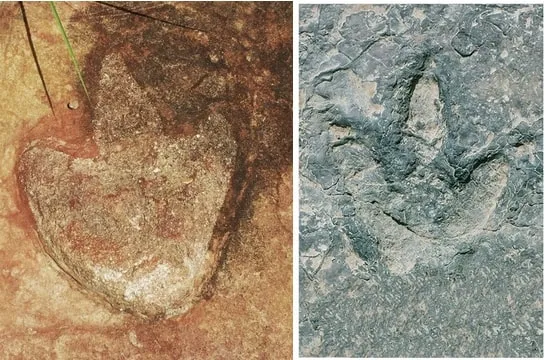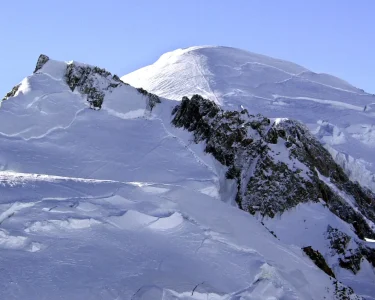A remarkable scientific discovery has unveiled matching dinosaur footprints on two continents separated by the Atlantic Ocean. These findings, observed in Brazil and Cameroon, offer a fascinating glimpse into the prehistoric movements of these colossal creatures, suggesting a more interconnected prehistoric world than previously imagined.

Discovery Details:
Researchers in Brazil’s fossil-rich valleys and Cameroon’s remote sediment layers have independently reported dinosaur footprints that remarkably match in size, shape, and presumed age. These footprints, believed to be from the late Jurassic period, indicate a possible migratory pattern or a widespread species that roamed the supercontinent Gondwana before it split.
Scientific Significance:
The synchronization of these footprints across continents not only challenges existing theories about geographic and species isolation but also provides paleontologists with crucial data to reconstruct the prehistoric ecosystem’s dynamics and continental drift patterns.
Implications for Paleogeography:
This discovery could reshape our understanding of dinosaur distribution and their environments, offering new insights into how these ancient giants migrated across vast landscapes that would become today’s continents.
Community and Cultural Impact:
In both Brazil and Cameroon, the discovery has sparked a renewed interest in paleontology, inspiring educational programs and local exhibitions that celebrate these ancient connections between distant lands.
Future Research Directions:
The scientific community is buzzing with excitement, and plans are underway for collaborative research efforts that will further explore these connections, potentially leading to more discoveries about our planet’s prehistoric past.
The discovery of matching dinosaur footprints in Brazil and Cameroon underscores the interconnectedness of our planet’s history and the ongoing mystery surrounding the lives of dinosaurs. It’s a reminder of how much is still left to uncover in the sands of time.
For more fascinating updates on paleontological discoveries, check out Digital Digest.




